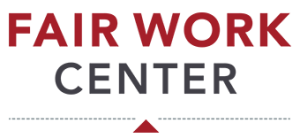Some examples of cases from the first quarter of 2018.
We recently met with a nail salon worker who came in initially asking about age discrimination. She described a situation in which a group of younger “interns” in the salon were getting all of the work. During our legal consultation, it became clear that the worker herself was being paid well less than the minimum wage. Furthermore, we learned that the “interns” were not being paid at all. Thus, what appeared to be a preference based on age was actually a preference for the unpaid workers. After several conversations with the worker, she has agreed to allow us to help her recover the wages she is owed. We hope to reach the “interns” as well.
In another case, a restaurant worker was referred to us from the Seattle Office of Labor Standards. The workers came in to talk about a time-shaving issue, but, as we learned more about the case, it became apparent that there were many other issues present. The Clinic will be representing this group of workers in recovering their pay and changing the practice at this large restaurant.
We have increasingly found that, once we speak to a single worker, we begin to hear from many others in the same workplace. For example, a single African-American worker from an airline came for legal counseling regarding race discrimination in the workplace. We were able to provide her with legal information and a description of enforcement options. Quickly thereafter, several Korean workers from that same airline came in for counseling about age and national origin discrimination and sexual harassment. We were able to connect the workers with a law firm to represent the whole group.
In another case, we counseled an adult entertainment worker and referred her to Seattle Office of Labor Standards for enforcement. Several more workers from the same establishment contacted us interested in collective action and organizing. Our Outreach team was able to provide a Know Your Rights training with enhanced legal services for the whole group. We have since connected them with community-based organizations focused on organizing and policy advocacy.
We have increasingly made use of an advocacy tool that we describe as a “make good choices” letters in situations where an employer has an ongoing illegal practice. We can send a letter on behalf of the Fair Work Center, letting the employer know that we are aware of the situation, explaining the law, and urging the employer to reconsider its decision or change its course of action. In one example, a local hotel employer planned to change its dispatch system for catering workers in a way that would impact older workers much more negatively than younger workers. In another case, a small employer was using a tip pool and incorrectly including supervisors and owners in the pool. The “make good choices” letters helped resolve the problem and reduce the chance of retaliation against individual workers.
